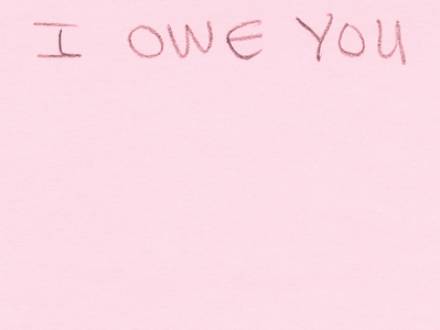Are Debts to Family and Friends Wiped Out in Texas Bankruptcy?
 Many of us turn to friends or family members when money is tight. Perhaps we need a loan to cover rent, medical bills, or unexpected business expenses. But what happens if you later file for bankruptcy in the state of Texas? Are these personal loans discharged like credit card or medical debt, or do different rules apply?
Many of us turn to friends or family members when money is tight. Perhaps we need a loan to cover rent, medical bills, or unexpected business expenses. But what happens if you later file for bankruptcy in the state of Texas? Are these personal loans discharged like credit card or medical debt, or do different rules apply?
Under both Chapter 7 and Chapter 13 bankruptcy, debts to an individual (including relatives) are treated the same as any other unsecured debt. However, as you might imagine, emotional, ethical, and legal complications can arise when loans from family members are involved.
It is essential to understand how Texas bankruptcy courts classify, disclose, and treat loans from family and friends to prevent serious misunderstandings – and even fraud allegations. An experienced Parker County, TX consumer bankruptcy lawyer can guide you through sticky issues like this, helping you to get a fresh financial start.
What Counts as a Personal Loan in Texas Bankruptcy?
The definition of a "claim" under 11 U.S.C. Section 101(5) includes any person or entity with a right to payment, whether formal or informal. Personal loans from friends and family members qualify if there is an agreement or an expectation of repayment. While documentation is not actually required, it does help establish legitimacy for the court and the trustee. Examples of documentation could include cash transfers, Venmo loans, handwritten IOUs, or verbal agreements that were later acknowledged in writing.
All debts must be listed in bankruptcy schedules, even those owed to family members. Failure to disclose loans from friends or family members can constitute bankruptcy fraud (18 U.S.C. Section 152). Trustees are likely to scrutinize family loans more closely to ensure no hidden assets or preferential treatment. It is essential to be transparent; unlisted creditors cannot share in distribution, and the loan would then remain collectible after discharge.
The Differences in Chapter 7 and Chapter 13 When Handling Family and Friend Loans
Chapter 7 bankruptcy treats family and friend loans as nonpriority unsecured debts, in the same manner as medical bills and credit card bills. These nonpriority debts are usually discharged with no repayment. The trustee may investigate any repayments made shortly before filing.
Any payments made to family, friends, or business partners within one year before the Chapter 7 bankruptcy filing may be "clawed back." The goal is to prevent favoritism among creditors. For example, if you borrowed $5,000 from your brother two years ago and repaid him $2,500 four months before you filed for bankruptcy, your brother may have to repay that amount.
Under Chapter 13 bankruptcy, debts to friends and family members are included in the repayment plan along with other unsecured claims. Family members are required to file Proofs of Claim to receive payments. If the debts are correctly listed, any remaining balances after plan completion are discharged. If the debts are not listed, the creditor (family member or friend) may be legally able to collect later through a civil lawsuit.
When Family Loans May Not Be Dischargeable
If the loan from a family member or friend was obtained through fraud or misrepresentation, it may not be dischargeable. If the loan was an undocumented business loan tied to business fraud, partnership disputes, or embezzlement, it may not be dischargeable. If the property was pledged as collateral for a loan to a family member or friend, they are entitled to retrieve that collateral (a car, piece of property, or other valuable asset). The discharge does not cover any debt incurred after filing for bankruptcy. It is important to note that debtors can voluntarily repay discharged family debts after bankruptcy.
Contact a Dallas, TX Chapter 13 Bankruptcy Lawyer
In Texas, a loan from a loved one or friend is still a legal debt, treated no differently than any other unsecured loan under bankruptcy laws. However, the personal dynamics make these cases different.
An experienced Parker County, TX Chapter 7 bankruptcy attorney from Acker Warren P.C. can help you disclose these personal loans properly, ensuring your bankruptcy petition complies with state and federal laws. When you choose our firm, you will always speak to an attorney as opposed to a paralegal. We typically have a very fast turnaround. Call 817-752-9033 to schedule your free consultation.









